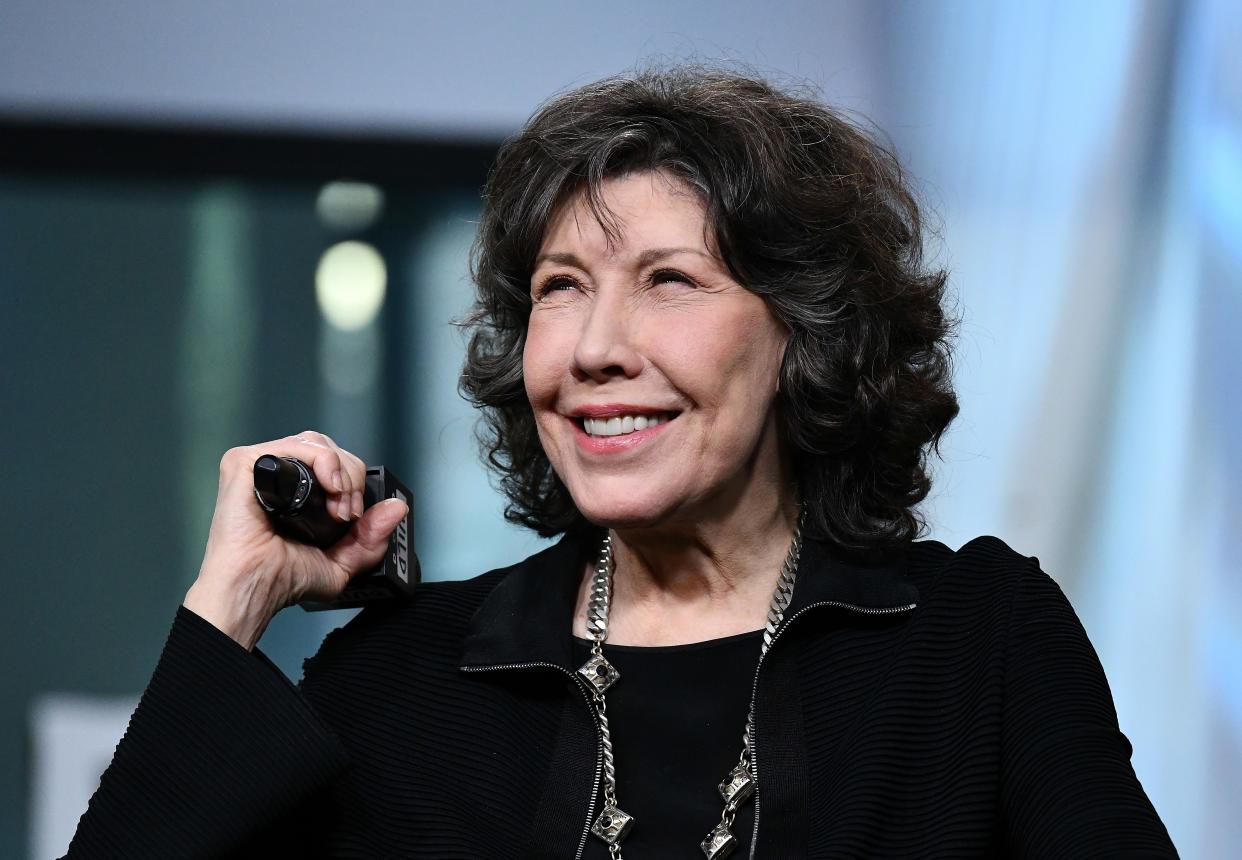On the Occasion of Her 80th Birthday, an Ode to the Singular Lily Tomlin

Years after becoming a star on Rowan & Martin’s Laugh-In, leading three variety specials, and releasing a string of Billboard-charting, Grammy-nominated comedy albums, Lily Tomlin still wondered if she hadn’t gone about it all quite wrong. “I’m scared,” she admitted to Vogue’s Jill Robinson in 1977, between performances of her one-woman show Appearing Nitely. “Maybe I’m not offensive enough; everyone likes me too much. It’s a bad sign. You can’t be a humorist or satirist if everyone likes you too much.” But meanness, she noted, wasn’t really her style. “I don’t see any point in harshness,” she said. “Humor is, absolutely, taste.”
Deep runs her catalogue of lovable kooks—from Ernestine, the nasally Laugh-In telephone operator; to Trudy, a bag lady with ties to outer space; madcap Ms. Frizzle, whom she voiced for the television adaptation of The Magic School Bus in the ’90s; and Grace and Frankie’s Frankie, a hippy-dippy artist in her twilight years—but Tomlin, who turned 80 on September 1, was always much too good for cheap shots. Together with Jane Wagner, her creative collaborator of some fifty years (and wife of six), the Detroit native crafted characters that were not only brilliantly, blisteringly funny, but that felt whole; they were people, ultimately, not punchlines. “[There] has to be humanity and real character” in humor, Tomlin told Robinson. “There has to be total love and perfection, a center that makes something be. It has to show you something.”
That Tomlin was—is—a virtuosic dramatic actress helped her cause. At its best, her character work enthralls and absorbs like a high-wire act—or, more relevantly for me, anyhow, a rousing jazz solo. It’s like that in The Search for Signs of Intelligent Life in the Universe, the one-woman show that she brought to Broadway in 1985 (and turned into a film with John Bailey in 1991). Over two and a half hours, Tomlin morphed from the digressive Trudy into Agnus Angst, a teenaged anarchist (“I look at my family; I feel like a detached retina.”); the sex workers Brandi and Tina (Brandi: “People don’t want sex so much as they want somebody who’ll listen.” Tina: “Yeah, that’s the first thing you learn after fellatio, is how to listen.”); Chrissy, who chats her way through an aerobics class (“All my life I’ve wanted to be somebody,” she reflects, “but I see now I should have been more specific.”), and scores of other outcasts determined to be heard.
It’s also like that in Nashville (1975), Robert Altman’s panoramic profile of the country-western music machine. Tomlin replaced Louise Fletcher as Linnea Reese, a lawyer’s wife and doting mother of two who has an affair with a visiting musician, played by Keith Carradine. It’s not a comedic performance, nor is it an especially prominent part, but it burns with the very deepest feeling. When we first meet Linnea, she’s in a recording studio with her gospel choir, the rest of whom are black—and if this seems like the set-up to a joke, it’s not. The expression on Linnea’s face as she sings and claps and dances is one of purest, sweetest jubilation, and instantly, Tomlin has us in the palm of her hand. It was her first film role—five years before 9 to 5—and it earned her an Oscar nod for Best Supporting Actress. “What will Ronee Blakley or Henry Gibson or Lily Tomlin or Barbara Harris do for encores?” asked the Times after Nashville’s release. “It’s a tough question but not an unhappy one.”
These days, as we await Grace and Frankie Season 6 (slated for 2020)—and, if we can believe the hopeful murmurings, the reunion of Tomlin, Jane Fonda, and Dolly Parton in a 9 to 5 sequel—Tomlin is as in demand as she has ever been, and thank goodness for that. A comic who frets about being too nice? We don’t deserve her—and that’s the truth.
Originally Appeared on Vogue

